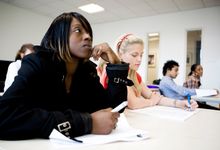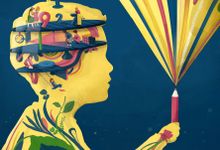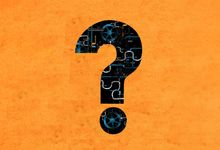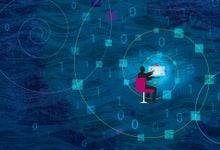Brain-Based Learning
Explore the mysteries of the human brain! Find out how discoveries in neuroscience provide insights into how students learn -- and how to engage them in the classroom.
Recognizing the Signs of Trauma
Trauma may look different from student to student, so it’s prudent to always use trauma-responsive practices.7225 Metacognitive Questions For Students Learning New Material
New materials can leave kids in the fog. Here are five metacognitive questions they can use to find their way and become more independent learners.3.3kHow Multisensory Activities Enhance Reading Skills
Reading lessons can involve more than just our eyes and ears. Here’s how you can promote reading skills using all five senses.2.5kWhy Ages 2-7 Matter So Much for Brain Development
Rich experiences—from play to the arts and relationships—fundamentally shape a young child’s development.97.8kSupporting Executive Function Skills by Asking Questions
Teachers can boost middle school students’ self-management skills by using questions to get their mental gears turning.1.9kMore Than a Dozen Ways to Build Movement Into Learning
Physical activity that amplifies learning can have a powerful effect on retention and engagement—it’s also fun.1.7kHow Kids Can Overcome the Awkwardness of Asking for Help
There are many reasons students don’t ask for help. Research shows there are strategies to help them overcome their reluctance.1.6k9 Brain Breaks for Elementary Students
To boost creativity and productivity, take time out for movement, calming exercises, and a healthy dose of fun.The Powerful Effects of Drawing on Learning
The science is clear: Drawing beats out reading and writing to help students remember concepts.64kApplying Insights From Neuroscience in the Classroom
Strategies based on neuroscience that can guide teachers in making decisions when planning lessons723The 10 Most Significant Education Studies of 2020
We reviewed hundreds of educational studies in 2020 and then highlighted 10 of the most significant—covering topics from virtual learning to the reading wars and the decline of standardized tests.21kUsing Cognitive Science to Boost Learning
Especially now, after a difficult year, strategies rooted in the science of learning can help middle and high school students more effectively retain what they’re learning.6355 Research-Backed Studying Techniques
Teachers can guide students to avoid ineffective studying habits in favor of ones that will increase their learning outcomes.42.8kOptimizing Working Memory in the Classroom
Research shows that distractions, confusing material, or an overwhelming amount of information can tax a student’s working memory. Here’s how to better support this essential executive function.2.4kA De-escalation Exercise for Upset Students
A simple technique that takes just a few minutes can help an agitated student regain the state of mind needed for learning.20k













